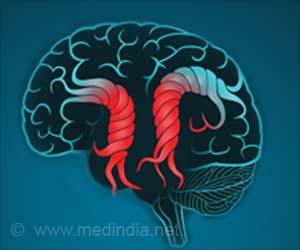The antibody that binds to the tau-proteins, acts like a magnifying glass, amplifying tau levels so that differences between individuals could be seen more easily.
Highlights
- Tangles of tau proteins are abundant in the brains of people with Alzheimer's disease and other neurodegenerative conditions.
- There is no test that is blood-based, easy and non-invasive that accurately reflects the status of tau in the brain.
- A new test that involves binding an antibody to the tau protein thus bringing it to detectable levels, has been developed, which provides insight into the status of tau in the fluid surrounding cells in brain.
The method accurately reflects levels of tau in the brain that correlate with neurological damage.
Though further study in humans is needed, this could be a potential initial screening method for tau-based diseases, monitor disease progression and measure the effectiveness of treatments designed to target tau.
"We showed that you can measure tau in the blood, and it provides insight into the status of tau in the fluid surrounding cells in brain," said senior author David Holtzman, MD, the Andrew B. and Gretchen P. Jones Professor and head of the Department of Neurology at Washington University School of Medicine in St. Louis.
"People with tau diseases have a wide range of symptoms because basically, wherever tau is aggregating, those parts of the brain are degenerating," Holtzman said. "So if it's in a memory area, you get memory problems. If it's in a motor area, you get problems with movement."
Most tau proteins in the brain are inside the neurons, some form tangles and the remiander float in the fluid between the cells. This fluid is constantly being washed out of the brain into the blood, and tau comes with it.
Maintaining Tau Proteins In the Blood Using Antibody
The research team inferred that the proteins would be able to accumulate to measurable levels if they could tau in the blood longer. If the proteins are allowed to accumulate before measuring its levels, would magnify the differences between individuals.
For the study, a known amount of tau protein was injected directly into the veins of mice and monitored how quickly the protein disappeared from the blood. Almost half the protein normally disappears in less than nine minutes.
Then an antibody that binds to tau was added, which extended the half-life of tau by 24 hours.
To determine the amplifying effect of the antibody, it was injected into mice and within a period two days, tau levels in the mice's blood went up into the easily detectable range.
The antibody amplifies tau levels so that differences between individuals could be seen more easily.
On administering antibody to 4 people with tau-related disease known as progressive supranuclear palsy, the tau levels in people's blood rose 50 to 100fold within 48 hours.
"It's like a stress test," Holtzman said. "We appear to be bringing out the ability to see what's coming from the brain because the antibody amplifies differences by prolonging the time the protein stays in the blood."
To test if the elevated brain tau is reflected in the blood, mice were treated with a chemical that injures neurons. The chemical causes tau to be released from the dying neurons, thus raising tau levels in the fluid surrounding the cells.
There was an increase of tau in the blood in the presence of the anti-tau antibody.
"It will be helpful in future studies to see if the measurement of tau in the blood following antibody treatment in humans reflects the state of tau in the brain," Holtzman said.
The research is published April 19 in Science Translational Medicine.
Reference
- David Holtzman et al. Anti-tau antibody administration increases plasma tau in transgenic mice and patients with tauopathy. Science Translational Medicine; (2017) DOI: 10.1126/scitranslmed.aal2029
Source-Medindia
















